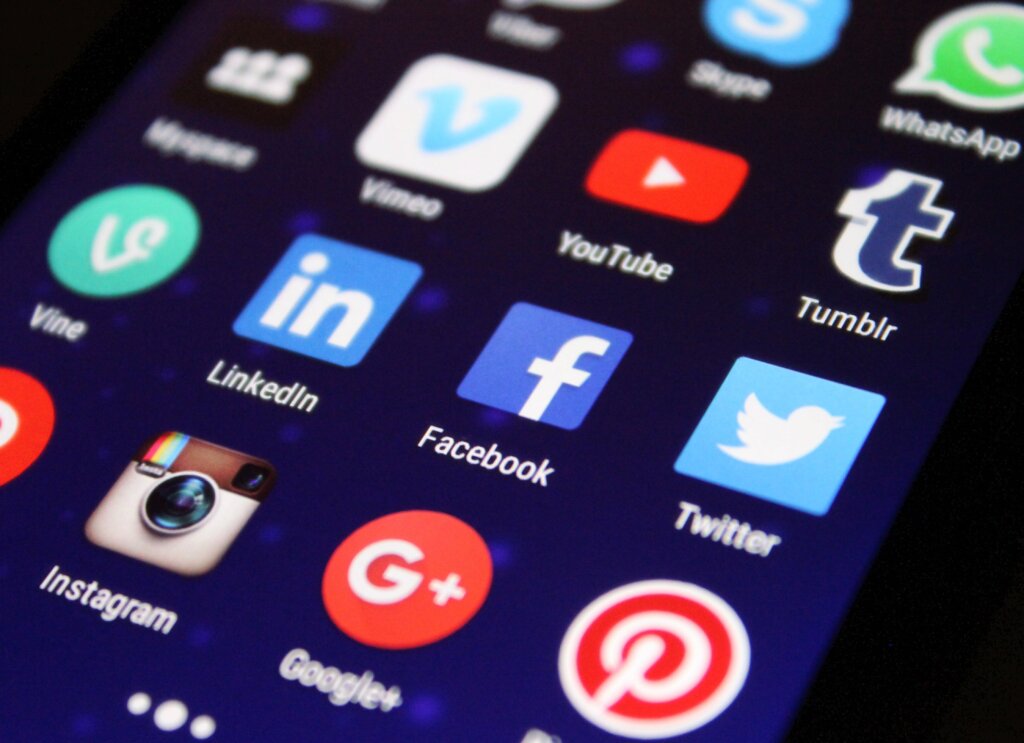How internet addiction affects mental health? – Internet addiction is a condition where your Internet usage becomes so much that you forget your everyday life and work.
This is a kind of behavioral addiction, in which you feel that without the internet, your day is incomplete. When social media, online gaming, or endless scrolling become the most important part of your life, you have entered the world of internet addiction.
Talking about mental health, is important for all of us. But when issues like internet addiction are also included, then the scene becomes even more serious.
Mental health is an important part of our life. If it goes bad, our whole life turns upside down. Therefore, this issue should not be ignored. When our mind is not well, we will not feel like doing anything.
So, let’s delve deeper into the intricacies of this topic, and understand how we can navigate it with a healthy mindset.
Understanding Mental Health

Mental health is a holistic term that comprehensively explains the state of our brain and mind. It affects our thoughts, feelings, and behaviors.
This includes our understanding, thinking, and involvement in relationships. A core belief of mental health is that our brain and body work well together.
There are many reasons affecting mental well-being. Factors like stress, anxiety, depression, and loneliness directly affect our mental health.
But, apart from this, our social and economic status can also deeply impact our state of mind. Additionally, genetic factors, childhood experiences, and daily lifestyle also affect our brain health.
Therefore, it is important for us to understand and pay attention to all these factors, so that we can maintain our mental well-being properly. (How internet addiction affects mental health?)
Rise of Internet Addiction
A. Technological Advancements:
Technological advancements since the birth of the Internet have changed our lives. Earlier, there was only a small computer, but now everyone holds a smartphone in their hand.
Features like high-speed internet, social media platforms, online gaming, and streaming services give us access to everything in the world at a click.
But, along with these features, a new problem has also arisen: Internet addiction. When technology becomes so accessible that we cannot live without it even for a moment, then understand how we have entered the world of internet addiction.
B. Vulnerable Populations:
Internet addiction can touch any age or social class, but some people are more predisposed to it. It has been sensibly observed that children and teenagers are more prone to internet addiction.
Their use of smartphones and the internet at a young age often leads them to addiction.
But apart from this, people with mental health conditions like loneliness, depression, and anxiety can also become victims of internet addiction. By understanding all these populations, we should be prepared to face this problem.
How internet addiction affects mental health?
- Signs and Symptoms
- Types of Internet Addiction
- Neurobiological Impact
- Cognitive Impairment
- Social Implications
- Psychological Disorders
- Physical Health Effects
- Treatment and Management
Signs and Symptoms
A. Behavioral signs:
There are some behavioral signs of Internet addiction that help us identify this problem. If your day seems incomplete without the internet, or you find it difficult to do anything without the internet, then this can be a common sign.
In another sign, if you are unable to control your online time and feel constant cravings to use the Internet, this can also be a warning symptom.
And if you are ignoring your social, work, and family responsibilities, just making time for the Internet, then it can also be a big sign that you have become a victim of Internet addiction.
B. Mental Appearance:
Internet addiction also causes mental manifestations that help us identify the problem. If your mood is changing quickly, or your attention and focus have decreased, this may also be a sign of Internet addiction.
Another common symptom is experiencing anxiety and depression. When you find yourself uncomfortable without the Internet or feel guilt or regret after using the Internet, it may also be a mental manifestation that you are suffering from Internet addiction.
It is important to understand all these symptoms so that we can save our mental health. (How internet addiction affects mental health?)
Effective Resistance and Refusal Skills to Avoid Substance Abuse
Types of Internet Addiction

A. Social Media Addiction:
Social media addiction is a common form of Internet addiction. When you start spending every single moment of your time on social media, waiting for notifications, and connecting your online persona with real life, then understand that you have entered the world of social media addiction.
This addiction steals your time and can also affect your mental health. Being on social media can also affect your self-esteem and make you feel lonely.
B. Online Gaming Addiction:
Online Gaming Addiction is another major form of Internet addiction. When you start playing for hours sitting in front of your gaming console or computer and start spending more time in the virtual world than your friends, then understand that you have become a victim of online gaming addiction.
This addiction can take you away from your responsibilities and can also harm your physical health. Your concentration and productivity may also decrease due to online gaming addiction, which affects your daily life.
Therefore, it is important to understand both these types of internet addiction and find ways to avoid them. (How internet addiction affects mental health?)
Neurobiological Impact
A. Dopamine and Reward System:
To understand the neurobiological effects of Internet addiction, we must look in the direction of dopamine and reward systems.
When we use the Internet and feel the anticipation of a new notification, like, or reward, our brain releases dopamine. Dopamine is a neurotransmitter responsible for pleasure and reward.
When we receive online rewards at regular intervals, such as likes on social media or completing challenges in gaming, it stimulates our brain’s reward systems and predisposes us to addiction. This constant stimulation can overwhelm the brain’s natural reward circuits, and lead to Internet addiction over time.
B. Changes in brain structure:
Another approach to understanding the effects of Internet addiction is through changes in brain structure. According to research, due to regular internet use and addiction, certain parts of our brain may undergo changes.
An important aspect of this is the prefrontal cortex, which is responsible for our decision-making, impulse control, and behavior regulation.
In the case of Internet addiction, this area can become weakened, reducing our ability to control impulses and make wise decisions.
Additionally, the effects of Internet addiction may also affect dopamine receptors, which regulate our mood and behavior. With all these changes, our brains can get trapped in a cycle of addiction and pull us towards more Internet use.
Therefore, understanding this neurobiological aspect helps us to tackle internet addiction in time. (How internet addiction affects mental health?)
How Does Technology Addiction Affect The Brain: Understanding the Link
Cognitive Impairment
A. Attention and Focus:
Internet addiction has a major impact on our attention and focus. When we’re constantly online, notifications, pop-ups, and endless scrolling distract us. As a result, our capacity for power becomes weak.
Our brain makes a habit of multitasking, due to which we are not able to concentrate our attention in one place. Moreover, when we take online breaks at regular intervals, our productivity also reduces.
All these factors affect our professional and personal lives, and can also harm our normal mental functionality.
B. Memory Efficiency:
The second major mental gap victim of Internet addiction is our memory functionality. When we spend so much time on the Internet, our brain’s ability to retain and process information is affected.
Additionally, when our brains are constantly bombarded with stimuli, such as gaming or social media, both our short-term memory and long-term memory are impacted.
According to research, it is common for people suffering from Internet addiction to suffer from memory loss and difficulty in remembering information.
Therefore, we need to monitor our Internet usage and make conscious efforts to protect our mental performance. (How internet addiction affects mental health?)
Social Implications
A. Personal Relationship:
The biggest impact of internet addiction is on our personal relationships. When we spend more time online, our real-life relationships diminish.
We sit in front of screens for hours instead of spending quality time with our family members, friends, and loved ones. Due to this our relations become cold and misunderstandings increase.
When we focus only on the online world, we ignore our relationships, which increases the distance between them.
B. Social Isolation:
Another major problem is social isolation, due to addiction to social media and online gaming. When we get so caught up in our virtual worlds that we forget our real-world connections, our social circles become smaller.
We start to feel that we are comfortable only in the online world, and we become disconnected from the real world. One disadvantage of isolation is that our social support system becomes weaker, which further impacts our mental health.
Psychological Disorders

A. Depression and Anxiety:
There is a strong link between Internet addiction and psychological disorders, of which depression and anxiety are a significant part. When we spend more time on the Internet, our brain is bombarded with static stimuli, which impacts our mood.
Factors such as constant comparison and validation seeking on social media, online bullying, and fear of missing out (FOMO) can increase depression and anxiety.
Additionally, problems associated with Internet addiction such as financial issues, job loss, and relationship disputes can also trigger depression and anxiety. Therefore, it is important to control internet addiction and take care of your mental health.
B. Depressive-Obsessive Disorder (OCD):
Another psychological disorder that emerges when there is internet addiction is depressive-compulsive disorder or OCD.
When we become obsessively engaged in an activity on the Internet, such as checking email, counting likes, or gaming, it may be a form of OCD. We continue to engage in repetitive behavior, creating a loop in our brain.
It becomes difficult to break out of this loop and leaves us with an overwhelming feeling of anxiety if we try to change our habits. In the case of Internet addiction, these OCD symptoms become even stronger, affecting our daily lives.
Therefore, we must monitor our online behavior and seek professional help if necessary so that we can maintain our mental health. (How internet addiction affects mental health?)
Physical Health Effects

A. Sedentary Lifestyle:
Internet addiction has a major impact on our physical health due to our sedentary lifestyle. When we sit in front of the screen for hours on the internet, our body remains fixed in one place and there is a lack of physical activity.
Due to this, our muscles become weak and our metabolism slows down. A sedentary lifestyle increases the risk of problems like obesity, heart disease, and diabetes. Therefore, it is important for our physical health to include regular exercise and activity in our daily routine and control our internet usage.
B. Sleep Disruptions:
Another physical health effect of Internet addiction is sleep disruptions. When we sit in front of the screen for a long time at night and use the internet, our brain activity remains stimulated, which affects our sleep.
Additionally, blue light from screens blocks our body’s natural sleep hormone melatonin, disrupting our sleep.
Sleep disruptions cause disruption in our daily routines and affect our mood and cognitive performance.
Therefore, it is important for us to take care of our sleep hygiene and reduce screen time before sleeping so that both our sleep and physical health remain good. (How internet addiction affects mental health?)
Treatment and Management
A. Psychotherapy Options:
There are many psychotherapy options available to treat and manage Internet addiction. A common psychotherapy technique is cognitive behavioral therapy (CBT), in which the therapist and patient work together to identify and work on their negative thoughts and behaviors.
Additionally, family therapy can also be an effective option, involving family members and strengthening their support system. Other therapies such as mindfulness-based therapy and addiction psychotherapy may also be helpful for Internet addiction.
Through these therapies, patients are helped to understand and control their online behavior and are taught healthy coping mechanisms.
B. Pharmacological Intervention:
Pharmacological interventions, i.e. the use of medications, may be helpful in treating Internet addiction in some cases. However, it is usually used for severe cases and co-occurring mental health disorders.
Such as medicines for depression, anxiety, or compulsive behavior. But, it is important that the medicines be used only under the supervision of a qualified healthcare provider, and only when other treatment options are not effective.
Apart from this, patients are also required to have regular follow-up appointments and monitoring to ensure that the medicines are used properly and there are no side effects.
Overall, pharmacological intervention can be a part of Internet addiction treatment, but it should always be done in combination with other treatment options. (How internet addiction affects mental health?)
Exploring Facts and Stats
Internet addiction, though not yet an official diagnosis in the DSM-5 (Diagnostic and Statistical Manual of Mental Disorders), can significantly impact mental well-being. Here are some key facts and stats to consider:
- Prevalence: Studies suggest a problematic internet use rate ranging from 1.9% to 8.2% in adolescents .
- Mental Health Concerns: Research shows a strong correlation between internet addiction and various mental health issues, including:
- Anxiety: A study published in the Journal of Child & Adolescent Health found a link between internet addiction and increased anxiety symptoms.
- Depression: Research in Computers in Human Behavior indicates a positive association between internet addiction and depression .
- Low Self-Esteem: Studies suggest that excessive internet use can negatively impact self-esteem, creating a cycle of needing online validation.
- Social Isolation: Internet addiction can lead to neglecting real-world relationships and social isolation, further worsening mental health.
- Sleep Disruption: Problematic internet use is often linked to irregular sleep patterns, which can exacerbate mental health issues.
- Comorbidity: Internet addiction can co-occur with other mental health conditions, making diagnosis and treatment more complex.
- Impact on Mood Disorders: Research indicates that excessive internet use is associated with higher rates of mood disorders such as depression and anxiety. A study published in the Journal of Medical Internet Research found that individuals with internet addiction were more likely to experience symptoms of depression and anxiety compared to non-addicted individuals.
- Link to Social Isolation: Internet addiction has been linked to increased social isolation and loneliness. A meta-analysis published in the Journal of Behavioral Addictions found a significant association between problematic internet use and social isolation, particularly among adolescents and young adults.
- Effect on Cognitive Functioning: Prolonged internet use can negatively impact cognitive functioning, including attention, memory, and decision-making abilities. A study published in the Journal of Abnormal Psychology found that internet addiction was associated with impairments in executive functioning and decision-making processes.
- Relationship Strain: Internet addiction can strain interpersonal relationships, leading to conflicts with family members, friends, and romantic partners. Research published in the Journal of Addiction Medicine suggests that individuals with internet addiction report lower levels of satisfaction in their relationships and higher rates of marital discord.
- Physical Health Consequences: In addition to its effects on mental health, internet addiction can also have physical health consequences. Sedentary behavior associated with excessive internet use can contribute to obesity, cardiovascular disease, and musculoskeletal problems.
- Impact on Academic and Occupational Functioning: Internet addiction can impair academic and occupational functioning, leading to poor performance in school or work. A systematic review published in the Journal of Behavioral Addictions found consistent evidence of a negative relationship between problematic internet use and academic achievement.
- Risk of Co-occurring Disorders: Individuals with internet addiction are at increased risk of developing co-occurring mental health disorders, such as substance abuse disorders and eating disorders. A study published in the Journal of Clinical Psychiatry found a significant association between internet addiction and comorbid psychiatric conditions.(How internet addiction affects mental health?)
Resources:
- Prevalence and Correlates of Problematic Internet Use Among Adolescents: A Review of Survey Studies: https://www.ncbi.nlm.nih.gov/pmc/articles/PMC3920008/
- The Negative Effects of Social Media and the Internet on Mental and Physical Health: https://www.ncbi.nlm.nih.gov/pmc/articles/PMC6338931/
- Problematic Internet Use and Sleep Quality: A Meta-Analysis: https://www.ncbi.nlm.nih.gov/pmc/articles/PMC5827795/
- Comorbidity of Internet Addiction and Other Mental Disorders: https://www.ncbi.nlm.nih.gov/pmc/articles/PMC3194507/
Conclusion
So, we saw what internet addiction is and what effect it has on our mind and body. We understand how Internet addiction affects our cognitive functioning, interpersonal relationships, and physical health.
We looked at what options there are for treating and managing this problem, such as psychotherapy and pharmacological interventions. Additionally, we discussed what new directions the future may take in Internet addiction treatment and how we can balance our online and offline interactions.
The problem of Internet addiction is a major challenge in today’s digital age, but further advancements in its treatment and management are expected in the future. Researchers and mental health professionals are constantly developing new approaches and techniques for the treatment of Internet addiction.
Apart from this, awareness campaigns and educational programs for digital wellness and online safety are also being given more emphasis.
In the future, it will be even more important for us to monitor our online behavior and take care of our mental health. Also, society also needs to be aware of this problem so that we can maintain a healthy and balanced digital lifestyle.
So, friends, this was our journey into the world of the relationship between internet addiction and mental health.
Now, it is time that we become more conscious in understanding and balancing our online and offline interactions, so that we can live a healthy and happy life. (How internet addiction affects mental health?)
I hope you have liked the information we have shared in our article, to know more about this you can read our other article too.
FAQs
What are some common warning signs of internet addiction?
- Some common warning signs include excessive time spent online, neglecting responsibilities, withdrawal symptoms when offline, and difficulty controlling internet use.
How can I tell if I am addicted to the internet?
- You may be addicted to the internet if you find it hard to cut back on your online activities, if it negatively impacts your relationships and daily life, and if you experience cravings and withdrawal symptoms when offline.
What are the behavioral indicators of internet addiction?
- Behavioral indicators include neglecting work, school, or social obligations due to excessive internet use, experiencing mood swings when unable to access the internet, and using the internet as a way to escape from problems or relieve stress.
What is the difference between internet addiction and casual use?
- Internet addiction involves a compulsive need to spend excessive time online, leading to negative consequences in various aspects of life. Casual use, on the other hand, involves moderate and controlled internet usage without significant interference with daily functioning.
How can I determine if my internet use is normal or addictive?
- Normal internet use enhances your life and allows you to maintain a balance between online and offline activities. However, if you find yourself constantly preoccupied with the internet, neglecting responsibilities, and experiencing negative consequences due to your online habits, it may indicate addiction.
What criteria differentiate between normal use and addiction?
- The differentiation lies in the extent to which internet use interferes with daily functioning and well-being. Addiction is characterized by compulsive behavior, loss of control, and negative consequences, while normal use involves moderate and controlled usage without significant impairment.
Has internet addiction been officially recognized as a mental health disorder?
- While internet addiction is not yet recognized as an official mental health disorder in diagnostic manuals such as the DSM-5, it is widely acknowledged as a significant behavioral problem that can lead to various mental health issues.
What are some common psychological disorders that may develop as a result of internet addiction?
- Internet addiction has been associated with an increased risk of developing depression, anxiety disorders, attention deficit hyperactivity disorder (ADHD), and social isolation.
What symptoms contribute to internet addiction being classified as a mental health disorder?
- Symptoms such as preoccupation with the internet, withdrawal symptoms when offline, unsuccessful attempts to cut back on internet use, and negative consequences in various areas of life contribute to its classification as a mental health disorder.
What can parents do to prevent their children from developing internet addiction?
- Parents can set limits on screen time, encourage outdoor activities and social interactions, monitor their children’s online activities, and serve as positive role models for healthy internet usage.
What are some effective parental control measures for monitoring internet use?
- Parental control measures include setting up parental controls on devices, establishing clear rules and boundaries regarding internet use, and maintaining open communication with children about online safety and responsible usage.
How can parents educate and guide their children about internet use effectively?
- Parents can educate their children about the potential risks of excessive internet use, teach them about online safety measures, encourage critical thinking and digital literacy skills, and foster healthy offline hobbies and relationships.
What are some effective treatments for internet addiction?
- Effective treatments for internet addiction include psychotherapy (such as cognitive behavioral therapy), family therapy, support groups, and lifestyle changes aimed at promoting healthier habits and reducing screen time.
Is psychotherapy the only approach for treating internet addiction?
- While psychotherapy is a common and effective approach, other interventions such as behavioral interventions, mindfulness-based therapies, and holistic treatments may also be beneficial depending on individual needs and preferences.